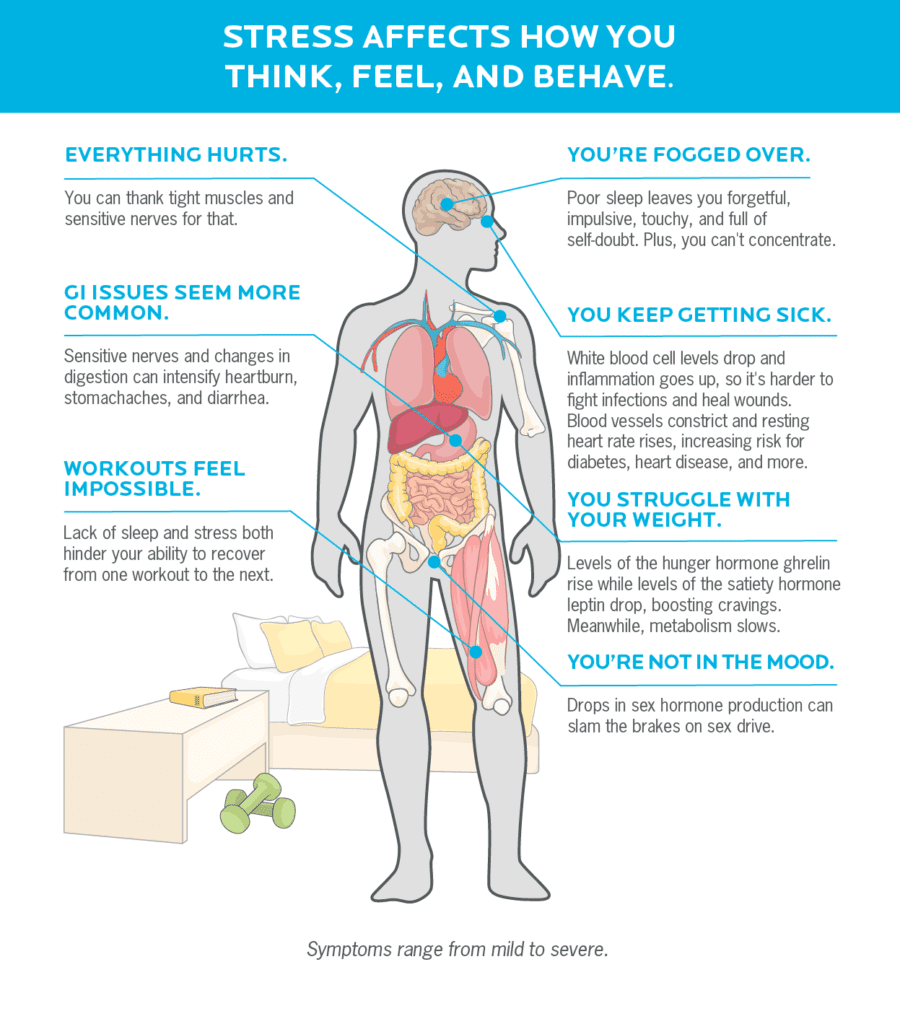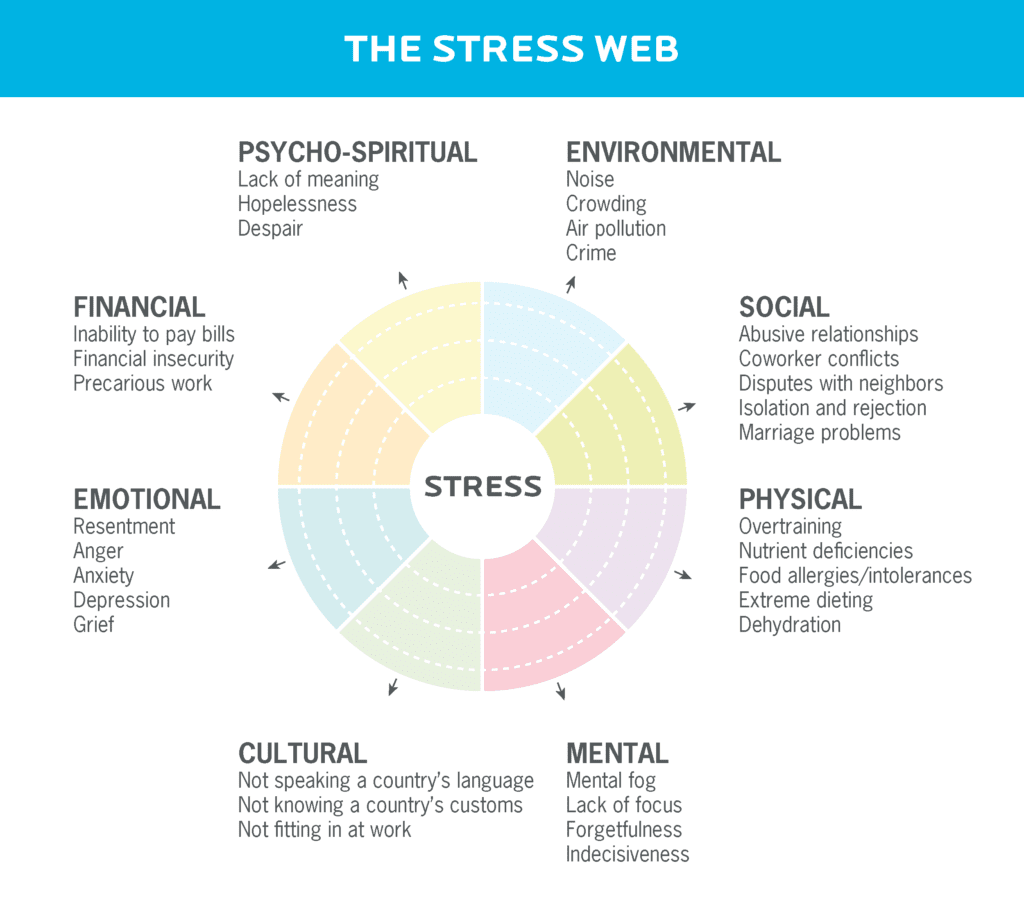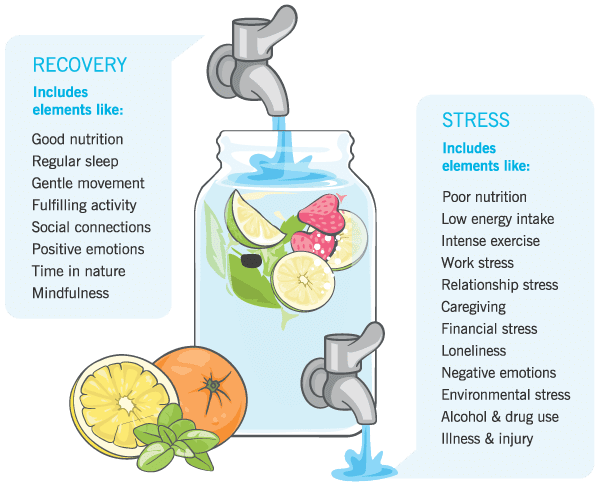The Truth About Adrenal Fatigue.

Reviewed by Helen Kollias, PhD
what is Adrenal fatigue? | Symptoms | Science | treatment
About 80,000 people type in "What is adrenal fatigue?" Each month. into a search bar, hoping for answers.
And the internet offers them plenty. (About 17 million, give or take.)
Click on any number of these offers and you can read an extremely compelling theory about how adrenal fatigue works.
This reasoning goes like this:
Prolonged stress or illness overwhelms your adrenal glands. Eventually your glands tire and sleep disorders, food cravings, brain fog, exhaustion and other symptoms set in.
According to some folks on Interwebz, expensive supplements, restrictive eat-this-not-that-diet lists, and essential oil blends can reverse this sad state of affairs.
When you're desperate for help, this theory of adrenal fatigue can seem like manna from heaven.
Except that it's not true, as we'll explain below.
Unfortunately, this misinformation prevents people from understanding what is really going on.
In this article, we will help you separate the fact from the fiction. In the end, you'll know the real cause of these symptoms – as well as evidence-based strategies that actually work.
What is adrenal fatigue?
To fully understand the theory of Adrenal Fatigue, you need a quick anatomy lesson.
At the top of each of your kidneys is an adrenal gland that releases a number of hormones. One of these hormones, cortisol, will get you out of bed, regulate your blood pressure and alert you in an emergency.
According to the theory of adrenal fatigue, too much stress causes the adrenal glands to stop working properly.
You either don't make enough cortisol or you make it at the wrong times (such as when you're trying to sleep).
This then leads to symptoms such as:
- feeling tired and lethargic
- poor healing and recovery
- Discomfort and pain
- Cravings for salt or sugar
- Have trouble falling asleep or waking up
- Dependent on caffeine to get through the day
These are all real problems. We suspect you may have experienced one (or all) of these. Or you know someone who has it. (Because otherwise you would be reading this story?)
Is Adrenal Fatigue Real?
The Truth: There isn't much evidence to support the Adrenal Fatigue Theory.
But there is quite a bit of evidence to disprove that.
After carefully examining 58 different studies, researchers from Brazil found that most of the people tested for adrenal fatigue had levels of cortisol … normal. In other words, their adrenal glands were far from exhausted
They concluded, "Adrenal fatigue doesn't exist." (Pretty clear where these scientists are!)
Sure, if you browse PubMed long enough, you will find some studies that claim to support the Adrenal Fatigue Theory.
These studies tend to measure levels of fatigue – rather than actual adrenal function. In other words, they show that fatigue exists, but not necessarily adrenal fatigue.
So why do so many people swear there is adrenal fatigue?
That's probably because your symptoms, called Adrenal Fatigue, are very real, common, and frustrating.
Fatigue is one of the main reasons people see a doctor. It plagues a lot of people. 2
For most of these people, stress, rather than adrenal fatigue, is the more likely problem. (More on this below).
Still, there is no simple medical test for stress.
However, there is a wide range of tests for dozens of complex medical conditions that can also lead to fatigue, including thyroid problems, sleep apnea, and anemia.
This can leave people in a situation where they are constantly telling their doctors how bad they are feeling.
So their doctors order more tests that don't reveal anything abnormal that can make patients feel unheard and misunderstood.
When someone isn't getting the answers they need, the theory of adrenal fatigue becomes very attractive.
Adrenal insufficiency
Many people confuse adrenal fatigue with adrenal insufficiency (AI).
However…
Adrenal insufficiency is a recognized medical diagnosis. 3
In AI, the adrenal glands don't produce their full list of hormones.
These include cortisol as well as aldosterone (which regulates the salt and water balance), DHEA (a “master” hormone that is necessary for testosterone and estrogen production) and others.
AI can result from Addison's disease, a condition in which the adrenal glands are physically damaged, often due to an autoimmune reaction in which the body attacks its own healthy tissues.
Or it can result from hormonal signal problems. This means that the hormonal signals from the pituitary or hypothalamus are not communicating properly with the adrenal glands. 4, 5
The symptoms of AI are usually more severe than those suggested for "adrenal fatigue".
They include:
- Weight loss and loss of appetite
- significant joint pain
- Stomach pain and excitement
- dry skin
- disturbed electrolytes (such as sodium and calcium)
- low blood pressure
- great tiredness
- Hyperpigmentation (darkened areas of the skin)
Adrenal insufficiency can only be diagnosed and treated by a doctor.
Stress: the real reason you feel so terrible
Here's what adrenal fatigue advocates are getting right: Stress is a real problem – for a lot of people.
Chronic stress doesn't just affect the adrenal glands.
Our stress response is a full-body experience that affects the nervous, digestive and immune systems, among other things.
Brief bouts of stress followed by adequate rest aren't a big deal. In fact, it makes us stronger.
However, when this stress persists and there is not enough rest, the body begins to break down.
Think about what could happen when you lift heavy dumbbells … forever. You wouldn't get stronger; you would get weaker.
And that is exactly what happens when you are under relentless stress, even under stress at a low level. Chronic stress with no respite feels terrible from head to toe, as the graphic below shows.

If you experience these symptoms, contact your doctor to rule out medical conditions.
If you leave with a clean health certificate, you may suffer the consequences of relentless stress without you having recovered adequately. Fortunately, simple, accessible practices can help.
Reduce stress that is in your control.
It is not realistic (or even ideal) to wipe out all stress. But you can reduce some stressors a few levels. Your First Step: Identify Your Stress Areas Using The Stress Web Below As A Guide.

Take into account your stress level for each area of the web.
To make this easier, you can download and print the web so that you can colorize the areas depending on the load.
Let's say you work out hard at the gym several days a week. Then you can color in all four sections of the physical part of the circle.
On the other hand, you may not be dealing with any of the financial stressors. In this case, you cannot color any of them.
Once you see which areas are causing the most stress, think about how you can reduce those areas of stress.
And do you know that the big things aren't always at stake.
Our client Zahra noticed, for example, that her ecological and mental dimensions of the stress network were particularly high.
After some thought, she made a few changes. She:
▶ bought noise canceling headphones to drown out their household
▶ installed apps on your computer to block certain websites at certain times of the day
These strategies enabled her to reduce unproductive distractions and focus on her work tasks.
After a month, Zahra began to feel clearer and actually began to enjoy her workday more. She also had a lot more energy. She hadn't realized how exhausting all these competing distractions had been.
Increase recovery in several areas of your life.
The more stress we deal with, the more we need to prioritize recovery.
Think of your "mojo reserve" like a pitcher: stress drains it and relaxation replenishes it.
Try to fill your pitcher at least as far as you drain it.

Recovery can take many forms. However, in working with over 100,000 clients, we've found that the following three practices have a tremendous impact.
Eat a nutrient-rich diet
Eat enough calories to support your body and activity level, with a good balance of macronutrients (including carbohydrates!).
Bonus points if you can eat slowly and consciously. (Here's Why Eating Slowly Is Much Better Than Dieting: The 30 Day Eating Challenge That Can Change Your Body.)
You can find more specific recommendations in our nutrition calculator. Fill in some basic information and you will be given a personalized nutrition plan based on YOUR body, lifestyle and goals.
Get a decent amount of exercise
If your intense spin or CrossFit sessions feel like they're breaking you instead of building you up, reduce the intensity and / or duration.
Schedule rest days and consider replacing some of your more intense workouts with gentle, restful movements that activate the parasympathetic "calming" nervous system. Think of: yoga, tai chi, nature walks (or “forest bathing” if you like!), Stretching and foam rolls.
Establish good sleeping habits
While we can't force ourselves to fall asleep on command, we have a lot of control over our sleep hygiene – the habits and routines we follow around sleep.
Experiment with the following strategies and see what works for you:
- Turn off devices 30 minutes before bed
- Use a journal to write down thoughts, worries, and memories before turning off the lights
- Turn the thermostat down a degree or two
- Take a hot shower or bath before bed
- Sleep alone so that you are not disturbed by your partner or pets
Remember, "to experiment" means to try it out. Each individual practice may or may not be useful. But you'll never really know unless you make a concerted effort to try.
You can always decide to stop if it doesn't make a difference. In fact, at PN we like to say when we change something or try something new: "It's forever for now."
Adopting this “nothing has to be permanent” mentality could help you (or your customers) be more open to experimentation.
(For a visual guide on how to shape your life for better sleep, see: The Power of Sleep).
You can build stress muscles.
When you face stressful events – with strong mindsets, relationships, and recovery practices – you get stronger.
If you're stuck in a downward spiral, small improvements can give you much-needed energy and hope for a brighter future.
At some point, stress can feel like surfing: Challenging and dynamic without putting you under pressure.
References
Click here to view the resources referenced in this article.
1. Cadegiani FA, male CE. Adrenal Fatigue Doesn't Exist: A Systematic Review. BMC Endocr Disorder. August 24, 2016; 16 (1): 48.
2. R. Stadje, K. Dornieden, E. Baum, A. Becker, T. Biroga, S. Bösner et al. The differential diagnosis of fatigue: a systematic review. BMC Fam practice. 2016 Oct 20; 17 (1): 147.
3. SR Bornstein, B Allolio, W. Arlt, A. Barthel, A. Don-Wauchope, GD Hammer et al. Diagnosis and Treatment of Primary Adrenal Insufficiency: A Guide to Clinical Practice for the Endocrine Society. J Clin Endocrinol Metab. February 2016; 101 (2): 364-89.
4. Charmandari E, Nicolaides NC, Chrousos GP. Adrenal insufficiency. Lancet. Jun 21, 2014; 383 (9935): 2152-67.
5. Husebye ES, Allolio B, Arlt W, Badenhoop K, Bensing S, Betterle C, et al. Consensus statement on the diagnosis, treatment, and follow-up of patients with primary adrenal insufficiency. J Intern Med. February 2014; 275 (2): 104–15.
If you are a health and fitness trainer …
Learning how to help clients manage stress, build resilience, and optimize sleep and recovery can be profoundly transformative – for both of you.
It helps clients loosen up and makes everything else easier – whether they want to eat better, exercise more, lose weight, or get their weight back
Bless you.
And for coaches: it gives you a rare skill that sets you apart as an elite change maker.
PN's brand new certification – announcement coming soon! – shows you how.
Would you like to know more?



